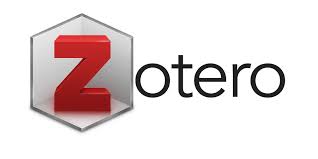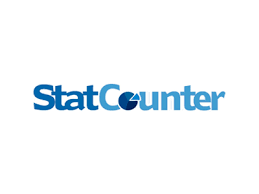Inovasi Buku Matematika Berpendekatan Realistic Mathematics Education Terintegrasi Nilai Keislaman pada Materi Bilangan
DOI:
https://doi.org/10.29240/ja.v4i2.5419Keywords:
Mathematics book, Islamic values, Realistic Mathematics Education, NumberAbstract
Mathematics books based on Realistic Mathematics Education (RME) integrated with Islamic values will make mathematics learning more memorable. The reason is, that the books or learning resources used by most students only contain a collection of material and practice questions. In addition, from the factor of students, many still do not understand the material because the examples given are not realistic. The purpose of this study is to determine the feasibility and practicality of mathematics books based on RME integrated Islamic values in grade 7 number material. This study uses the RnD type with the ADDIE model (Analysis, Design, Development, Implementation, Evaluation). The data collection instruments were interviews, validation sheets, and questionnaires. The population of this study was students of MTs Al-Ma'arif Gembong Pati. The sample is 7th-grade students of MTs Al-Ma'arif Gembong Pati which was taken through the purposive sampling technique. This math book was tested for feasibility by a team of experts consisting of 2 material experts, 2 media experts, and 2 religious experts. In the feasibility test, the material expert got an average score of 115 with very decent criteria. The media expert obtained an average score of 125.5 with very decent criteria. And religious experts get an average score of 64.5 with very decent criteria. Then, to find out the practicality of the book, product trials were carried out in small and large groups. Small groups consisting of 10 students obtained an average score of 66.6 with very practical criteria. A large group followed by 42 students got an average score of 65.9 with very practical criteria. So it can be concluded that the RME-based mathematics book integrated Islamic values in grade 7 number material is feasible and practical to be used in learning mathematics.
Downloads
References
Alim, J. A., Hermita, N., Alim, M. L., Wijaya, T. T., & Pereira, J. (2021). Developing a Math Textbook using realistic Mathematics Education Approach to increase elementary students’ learning motivation. Jurnal Prima Edukasia, 9(2), 193–201. https://doi.org/10.21831/jpe.v9i2.39393.
Amir MZ, Z. (n.d.). Integrasi Nilai Pendidikan Islam dalam Pendidikan Umum Sebagai Revitalisasi Pendidikan Islam. Jurnal Kependidikan Islam. http://repository.uin-suska.ac.id/10415/1/Bu Idah 7.pdf.
Asikin, M., Nurhidayat, M. F., & Ardiansyah, A. S. (2021). Development of STEM-nuanced textbook to improve students’ mathematical communication skill. Journal of Physics: Conference Series, 1918(4). https://doi.org/10.1088/1742-6596/1918/4/042064.
Dewi, N. K., Untu, Z., & Dimpudus, A. (2020). Analisis Kesulitan Menyelesaikan Soal Matematika Materi Operasi Hitung Bilangan Pecahan Siswa Kelas VII. Primatika : Jurnal Pendidikan Matematika, 9(2), 61–70. https://doi.org/10.30872/primatika.v9i2.217.
Firman, F., Ahmad, A., & Anshari, A. (2021). Teaching Materials Development of Indonesian Language Based on Islamic Text in Islamic Universities. Universal Journal of Educational Research. https://doi.org/10.13189/ujer.2021.090101.
Hidayatullah, Haqqi ; Ekawati, R. (2021). Development of Interactive Module Based on Realistic Mathematics Education for The Material of Numbers. MATHEdunesa Jurnal Ilmiah Pendidikan Matematika, 10(3).
Kantun, S., Sri, Y., & Budiawati, R. (2015). Analisis Tingkat Kelayakan Bahan Ajar Ekonomi yang Digunakan oleh Guru di SMA Negeri 4 Jember. Jurnal Pendidikan Ekonomi, 9(2), 129–146.
Malasari, P. N., Herman, T., & Jupri, A. (2019). Kontribusi habits of mind terhadap kemampuan literasi matematis siswa pada materi geometri. Jurnal Pendidikan Matematika (Kudus), 2(2), 153-164.
Malasari, P. N., Herman, T., & Jupri, A. (2020). Inquiry Co-operation model: An effort to enhance students’ mathematical literacy proficiency. JTAM (Jurnal Teori dan Aplikasi Matematika), 4(1), 87-96.
Malasari, P. N., & Awofala, A. O. (2022). Emotional Quotient and Students’ Mathematical Problem-Solving Proficiency: A Meta-Analysis. IndoMath: Indonesia Mathematics Education, 5(2), 135-144.
Nashrullah, F. R., Asikin, M., Waluya, B., & Zaenur. (2021). Kemampuan Berpikir Kritis Matematis Siswa pada Pembelajaran Realistic Mathematics Education. Jurnal Integral, 12(1), 1–18. https://ojs3.umc.ac.id/index.php/JNR/article/view/2007/1272.
Nesri, F. P. (2020). Pengembangan Modul Ajar Cetak dan Elektronik Materi Lingkaran untuk Meningkatkan Kecakapan Abad 21 Siswa Kelas XI SMA Marsudirini Muntilan. Skripsi Universitas Sanata Dharma Yogyakarta. https://repository.usd.ac.id/37641/2/161414022_full.pdf.
Nihayati. (2017). Integrasi nilai-nilai islam dengan materi himpunan (kajian terhadap ayat-ayat al- qur’an). Jurnal Edumath, 3(1), 65–77.
Rahmatin, U., Katili, M. R., Hadjaratie, L., & Suhada, S. (2021). Pengembangan media komik untuk pembelajaran materi logika dan algoritma komputer. Jambura Journal of Informatics, 3(1), 11-19.
Risnawati, Amir, Z., & Fitraini, D. (2020). Development of Mathematics Instructional Materials Integrated with Islamic Sciences. International Conference on Mathematics and Islam, ICMIs 2018, 397–404. https://doi.org/10.5220/0008522503970404.
Rustandi, A. (2021). Penerapan Model ADDIE dalam Pengembangan Media Pembelajaran di SMPN 22 Kota Samarinda Andi. Jurnal FASILKOM, 11(2), 57–60. https://repository.unmul.ac.id/bitstream/handle/123456789/10940/JURNAL_UMRI.pdf?sequence=1.
Tegeh, I Made; Jampel, I. N. P. T. (2015). Pengembangan Buku Ajar Model Penelitian Pengembangan Dengan Model Addie. Jurnal Dimensi Pendidikan Dan Pembelajaran, 3(1), 24–29. https://eproceeding.undiksha.ac.id/index.php/senari/article/download/507/352.
Winarso, W., & Wahid, S. (2020). Development of mathematics teaching device integrated with quranic values: Issues, challenges, and implementation model. International Journal of Learning, Teaching and Educational Research, 19(1), 95–117. https://doi.org/10.26803/ijlter.19.1.6.
Wulandari, S., Febrini, D., & Syafri, F. S. (2020). Pengembangan Modul Matematika yang Terintegrasi Nilai-Nilai Islam Berbasis Pendekatan Saintifik pada Materi Himpunan The Development of Mathematical Modules Integrated to Islamic Value Based on Saintific Approach in Set. Jurnal Equation: Teori Dan Penelitian Pendidikan Matematika, 3(2), 206–220.
Zaqiyah, K., Lutfiyah, L., & Sulisawati, D. N. (2020). Pengembangan Modul Berbasis Realistic Mathematics Education untuk Pembelajaran Bangun Ruang Sisi Lengkung. Laplace : Jurnal Pendidikan Matematika, 3(2), 151–162. https://doi.org/10.31537/laplace.v3i2.381.
Downloads
Published
Issue
Section
Citation Check
License
Authors who publish with ARITHMETIC: Academic Journal of Math agree to the following terms:
- Authors retain copyright and grant the journal right of first publication with the work simultaneously licensed under a Creative Commons Attribution-NonCommercial-ShareAlike 4.0 International License (CC BY-NC-SA 4.0) that allows others to share the work with an acknowledgment of the work's authorship and initial publication in this journal.
- Authors are able to enter into separate, additional contractual arrangements for the non-exclusive distribution of the journal's published version of the work (e.g., post it to an institutional repository or publish it in a book), with an acknowledgment of its initial publication in this journal.
- Authors are permitted and encouraged to post their work online (e.g., in institutional repositories or on their website) prior to and during the submission process, as it can lead to productive exchanges, as well as earlier and greater citation of published work (See The Effect of Open Access).







